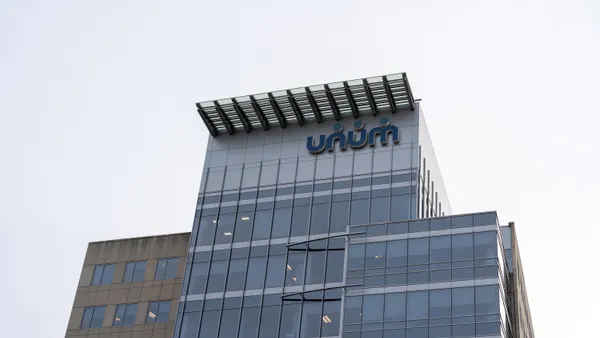Dive Brief:
- Nearly half of corporate real estate decision makers plan to accelerate technology investments in order to optimize their workplace, according to new research by JLL, a global real estate services company.
- The real estate industry, similar to other industries, has experienced staffing shortages and the push for more workplace flexibility. The investments in technology are expected to support employees, hybrid workflows and sustainability efforts.
- Over half of respondents plan to use immersive technologies, virtual reality, smart contracts and industrial robots by 2025, according to the report, which surveyed almost 1,100 corporate real estate decision-makers.
Dive Insight:
Despite the need to sell brick-and-mortar, corporate real estate is looking toward technology to do its job better and more efficiently, especially as workers push for hybrid work environments.
“When I started my role, there was a recognition that technology was important,” Sandeep Davé, chief digital and technology officer at CBRE, said. “But then there has been a dramatic acceleration of technology adoption in every facet of how real estate gets done.”
From the way space is identified to visual and immersive touring, the real estate industry has changed for good.
Davé’s tech teams automated more than 100 processes, created the desk scheduling CBRE Host platform and have worked to increase data visibility.
Business employees have also benefited from augmented reality technology. To combat the talent crisis, general technicians are able to enter a space, wear an augmented reality headset and have more senior employees support them virtually, according to Davé.
Because of the overall shift to hybrid work, real estate companies have to provide more than just four walls to entice buyers.
Davé and his tech teams have created whiteboard-like touchscreens to allow users to collaborate both in-person and remotely, part of a larger push to upgrade collaboration technologies within spaces.















